-
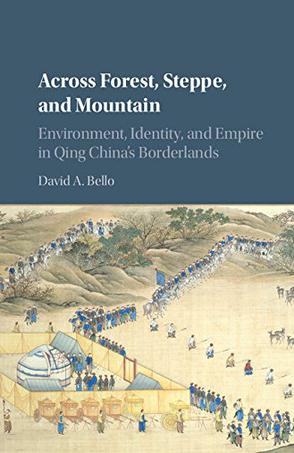
Across Forest, Steppe, and Mountain
In this book, David Bello offers a new and radical interpretation of how China's last dynasty, the Qing (1644–1911), relied on the interrelationship between ecology and ethnicity to incorporate the country's far-flung borderlands into the dynasty's expanding empire. The dynasty tried to manage the sustainable survival and compatibility of discrete borderland ethnic regimes in Manchuria, Inner Mongolia, and Yunnan within a corporatist 'Han Chinese' imperial political order. This unprecedented imperial unification resulted in the great human and ecological diversity that exists today. Using natural science literature in conjunction with under-utilized and new sources in the Manchu language, Bello demonstrates how Qing expansion and consolidation of empire was dependent on a precise and intense manipulation of regional environmental relationships. Combines under-utilized and new sources in the Manchu language with natural science literature Complements a general professional and publishing trend in environmental history relating both to China and to global history of the early modern period Offers a new, radical interpretation of how China's last dynasty relied on the interrelationship between ecology and ethnicity to incorporate China's borderlands into its expanding empire -
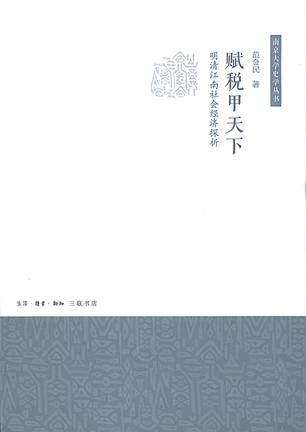
赋税甲天下
本书是作者多年耕耘明清江南社会经济领域的研究成果。作者从社会经济、社会生活、商帮贸易的角度,逐一分析、探讨明清以来江南重赋问题的根源、江南地区的经济结构、江南士大夫文人行为方式的转变等问题。尤其引人注目的是,作者对当下人们关注的热点问题——明清地域商帮——有精彩的叙述和解说。 -
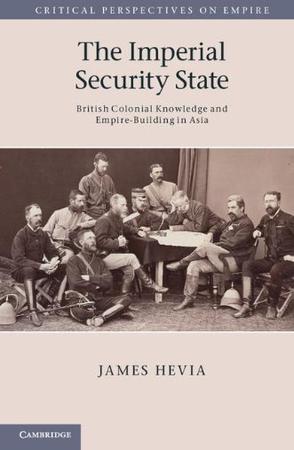
The Imperial Security State
The Imperial Security State explores an important but under-explored dimension of British imperialism – its information system and the close links between military knowledge and the maintenance of empire. James Hevia's innovative study focuses on route books and military reports produced by the British Indian Army military intelligence between 1880 and 1940. He shows that together these formed a renewable and authoritative archive that was used to train intelligence officers, to inform civilian policy makers and to provide vital information to commanders as they approached the battlefield. The strategic, geographical, political and ethnographical knowledge that was gathered not only framed imperial strategies towards colonised areas to the east but also produced the very object of intervention: Asia itself. Finally, the book addresses the long-term impact of the security regime, revealing how elements of British colonial knowledge have continued to influence contemporary tactics of counterinsurgency in twenty-first-century Iraq and Afghanistan. - Innovative study of British military intelligence before World War One - Sheds new light on the close links between empire-building and intelligence - Reveals the long-term origins of contemporary counterinsurgency tactics "This book is a groundbreaking study of the rise of the British imperial security regime in the 19th century. James L. Hevia’s mastery of rare military archives demystifies the trope of the Great Game and provides an extraordinarily detailed analysis of how the geopolitical boundaries of Asia were produced through a proliferation of route books, maps and statistics, and other apparati of imperial intelligence networks. His scrutiny of the imperial past makes the contemporary security-obsessed American empire supremely legible." Lydia H. Liu, author of The Clash of Empires "Clearly written, well researched, and persuasively argued, Hevia's latest book will engage a range of readers. Scholars of diplomatic history will find especially valuable Hevia's insights into the growth and development of military intelligence as the other major component of the developing European security regimes in Europe and in Asia. Historians of Asia will also gain much from his research, linking as it does south, central, and eastern Asia into the British imperial network of intelligence gathering and control." Michael H. Fisher, H-Diplo "… an elegant, thoughtful and often provocative analysis of how security imperatives dictated the collection, analysis, and dissemination of military information … The Imperial Security State makes a persuasive and passionate argument for the centrality of military intelligence in not only developing strategies to intervene in Asia but more significantly in defining what Asia actually meant then and now. It is a very compelling account, lucidly presented, solidly researched and theoretically sophisticated." Douglas M. Peers, Journal of Colonialism and Colonial History "Recommended." Choice -
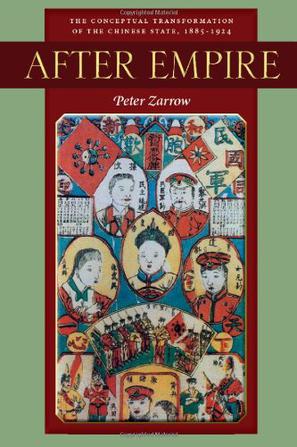
After Empire
From 1885–1924, China underwent a period of acute political struggle and cultural change, brought on by a radical change in thought: after over 2,000 years of monarchical rule, the Chinese people stopped believing in the emperor. These forty years saw the collapse of Confucian political orthodoxy and the struggle among competing definitions of modern citizenship and the state. What made it possible to suddenly imagine a world without the emperor? After Empire traces the formation of the modern Chinese idea of the state through the radical reform programs of the late Qing (1885–1911), the Revolution of 1911, and the first years of the Republic through the final expulsion of the last emperor of the Qing from the Forbidden City in 1924. It contributes to longstanding debates on modern Chinese nationalism by highlighting the evolving ideas of major political thinkers and the views reflected in the general political culture. Zarrow uses a wide range of sources to show how "statism" became a hegemonic discourse that continues to shape China today. Essential to this process were the notions of citizenship and sovereignty, which were consciously adopted and modified from Western discourses on legal theory and international state practices on the basis of Chinese needs and understandings. This text provides fresh interpretations and keen insights into China's pivotal transition from dynasty to republic. -
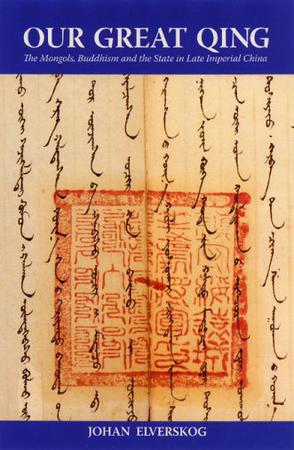
Our Great Qing
"In a sweeping overview of four centuries of Mongolian history that draws on previously untapped sources, Johan Elverskog opens up totally new perspectives on some of the most urgent questions historians have recently raised about the role of Buddhism in the constitution of the Qing empire. Theoretically informed and strongly comparative in approach, Elverskog’s work tells a fascinating and important story that will interest all scholars working at the intersection of religion and politics." —Mark Elliott, Harvard University "Johan Elverskog has rewritten the political and intellectual history of Mongolia from the bottom up, telling a convincing story that clarifies for the first time the revolutions which Mongolian concepts of community, rule, and religion underwent from 1500 to 1900. His account of Qing rule in Mongolia doesn’t just tell us what images the Qing emperors wished to project, but also what images the Mongols accepted themselves, and how these changed over the centuries. In the scope of time it covers, the originality of the views advanced, and the accuracy of the scholarship upon which it is based, Our Great Qing seems destined to mark a watershed in Mongolian studies. It will be essential reading for specialists in Mongolian studies and will make an important contribution and riposte to the ‘new Qing history’ now changing the face of late imperial Chinese history. Specialists in Tibetan Buddhism and Buddhism’s interaction with the political realm will also find in this work challenging and thought-provoking." —ChristopherAtwood, Indiana University Although it is generally believed that the Manchus controlled the Mongols through their patronage of Tibetan Buddhism, scant attention has been paid to the Mongol view of the Qing imperial project. In contrast to other accounts of Manchu rule, Our Great Qing focuses not only on what images the metropole wished to project into Mongolia, but also on what images the Mongols acknowledged themselves. Rather than accepting the Manchu’s use of Buddhism, Johan Elverskog begins by questioning the static, unhistorical, and hegemonic view of political life implicit in the Buddhist explanation. By stressing instead the fluidity of identity and Buddhist practice as processes continually developing in relation to state formations, this work explores how Qing policies were understood by Mongols and how they came to see themselves as Qing subjects. In his investigation of Mongol society on the eve of the Manchu conquest, Elverskog reveals the distinctive political theory of decentralization that fostered the civil war among the Mongols. He explains how it was that the Manchu Great Enterprise was not to win over "Mongolia" but was instead to create a unified Mongol community of which the disparate preexisting communities would merely be component parts. A key element fostering this change was the Qing court’s promotion of Gelukpa orthodoxy, which not only transformed Mongol historical narratives and rituals but also displaced the earlier vernacular Mongolian Buddhism. Finally, Elverskog demonstrates how this eighteenth-century conception of a Mongol community, ruled by an aristocracy and nourished by a Buddhist emperor, gave way to a pan-Qing solidarity of all Buddhist peoples against Muslims and Christians and to local identities that united for the first time aristocrats with commoners in a new Mongol Buddhist identity on the eve of the twentieth century. -
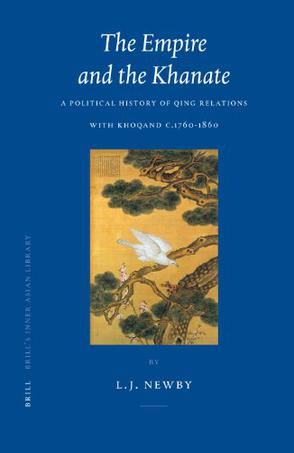
The Empire And the Khanate
Drawing primarily on Qing archival sources, this study charts the changes in Qing policy that characterized the empire’s relations with the Central Asian khanate of Khoqand, from the Qianlong era to the mid-19th century. It explores how the development of Khoqand as a regional power and its involvement with the khoja-cause impacted on Qing policy towards Xinjiang (Eastern Turkestan) and the consolidation of the north-western frontier. Focussing on the Altishahr region, it illustrates how, a notion of border defined by geography, politics and military logistics began to replace the earlier open and more fluid notion of frontier in Qing political thinking. It suggests that these developments presaged a transition from empire to nation-state long before the upheavals of the late 19th century.